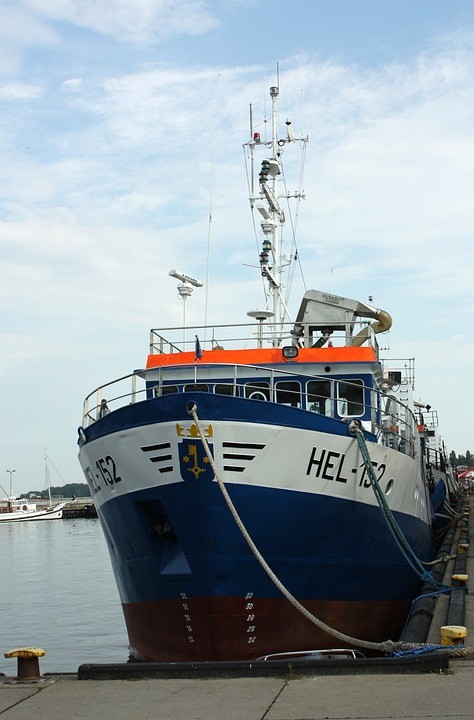Revolution: Chapter 4 – The First Council M...
The first full meeting of the Council for National Renewal convened at the Union Buildings on 18 September 2026, eleven days after the coup.
It is now but seldom that a rough sea brings ashore any flotsam of interest. Usually, it is just nurdles and microplastics. Also, plastic bags and bottles, and the occasional lobster trap, or a wooden pallet, or some fishing net. Nothing worthy of much note. So, when I saw some heavy rope entangled with kelp lying just above the high tide mark, I stopped to take a closer look, and I am glad that I did.
It was exceptionally thick and had a colony of barnacles growing on it, which meant that it had been floating in the ocean for some time, possibly years. When I saw the two loops encased in protective sleeves, I realised this was a complete hawser that was once used to moor a large ocean-going vessel. Because it was entangled in kelp, it was difficult to judge its length, but I would say it was a good ten meters long. When I tried to move one end it proved far too heavy for a feeble old codger like me, and I wished somebody such as Soutie or the Beachcomber would arrive on the scene and use their brute strength to help haul the rope out straight for closer examination. No such luck.
On doing some research, I learned some interesting facts about ropes, cables and hawsers that are made from natural fibres and not nylon or steel wire.
I already knew that ‘hawser’ is a nautical term for a thick cable or rope used in mooring or towing a ship. What I was not aware of was that some rope is waterproof, and some not. According to Wikipedia:
Ordinary rope is not waterproof. When a ship anchors in relatively deep water (greater than about 35 metres or 20 fathoms), the anchor and rope that is let down becomes drenched with water, becoming prohibitively difficult to raise again, even with a mechanism like a capstan. This ultimately limits the depths available with ordinary rope to within the weight bearing capacity of the rope. The rope will become so heavy with water it will break.
The traditional instructions, according to the British Royal Navy in the age of sail, are: Three large strands of tightly woven rope of about 200 metres (110 fathoms) in length are themselves tightly woven in a direction counter to the weave, or twist, of the rope and clamped together over intervals to provide one strong length of rope that is effectively waterproof. The three ropes are so tightly wound counter to the weave of the constituent ropes that the fibers are compressed and the individual weaves stressed, sealing out the water and resulting in a length of about 180 metres (100 fathoms), the UK traditional definition of cable length. Using a cable, the raising of the anchor, or any activity involving submerging the cable, is not more strenuous than lowering.
Furthermore:
Hawsers are not cables. Hawsers are ropes of arbitrary length woven together to increase the strength of the overall line, but are not considered waterproof as the weave of the hawser goes with the weave of the constituent ropes. This has been come to be known as "hawser laid" and "cable laid".
Enlightened, I now understood why that hawser on the beach was so damned heavy. And to think that I could have gone to the grave ignorant of such fascinating facts!

Two days after it was washed up, the hawser was gone, consumed by the beach. Maybe it will emerge if we get a big enough storm this winter and heavy waves scour the sand away. I will be on the lookout but I do not expect to see it again.
To view my longer work as an author, you can find me on Smashwords here.
This is my writer's blog and it's a pleasure to have your company. You’ll see that the site is designed to showcase my writing.
View ProfileXplorio is your local connection allowing you to find anything and everything about a town.
Read MoreThe first full meeting of the Council for National Renewal convened at the Union Buildings on 18 September 2026, eleven days after the coup.
The Second Council Meeting, held on 2 November 2026, marked the beginning of serious economic deliberation. Now came the deeper and more dangerous challenge: how to rebuild an economy hollowed out by decades of corruption, mismanagement, and policy c...
I phoned him a week ago and we exchanged pleasantries. "All well. Except, I'm in the dogbox of late."
The operation that would later be known as The September Intervention unfolded with a precision that surprised even its architects.
The inner circle that would eventually engineer the September Intervention took shape quietly and methodically during the first half of 2026.
Revolution is a gripping political chronicle of South Africa's rebirth after a 2026 coup that topples a failing government and sparks an age of reform.
